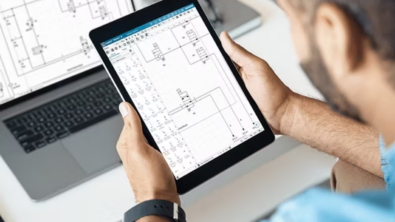Embracing a sustainable future through wiring harness design

Sustainability is more than just a buzzword, it is a concept vital to the future of all businesses, and especially to the future of the automotive and transportation industry. Changes in regulations, consumer and shareholder expectation and sustainability-related risks are three ways in which sustainability is crucial to automotive engineers at some of the world’s top auto OEMS.
Let’s look closer at those three aspects:
- Regulatory Compliance: The regulatory landscape is changing fast and increasingly requiring businesses to report and reduce their carbon emissions. Depending on where they are in the world, companies must comply with new and changing regulations, such as the European Union’s Corporate Sustainability Reporting Directive and the United States’ SEC proposal to enhance and standardize climate-related disclosures for investors.
- Consumer and Customer/Investor Demand: There is a growing global awareness and concern about environmental issues, climate change and the impact of human activities. Consumers are increasingly making choices based on sustainability. Similarly, investors are focusing on sustainability as a new form of profitability metrics that indicates how likely a business is able to ensure the future economic sustainability of their company. This becomes clear when we look at the many automotive companies that are committing to net zero goals in the near future.
- Risk Mitigation: Embracing sustainability can help OEMs mitigate risks associated with future resource scarcity, governmental changes and shifts in consumer preferences. Decreasing the dependency on scarce primary materials by investing in recycling and reusing technologies can ensure access to critical materials in the future, while at the same time decreasing the dependency on geopolitically exposed supply chains for such materials. Proactively integrating sustainable practices into operations helps build resilience against potential disruptions.
Maintaining sustainability in the wiring harness design industry requires a high level of transparency. This can be accomplished by creating an end-to-end digitized process chain. Comprehensive digital twin technology enables wiring harness manufacturers to create more sustainable electrical and electronic (E/E) systems by using Capital™ software and Teamcenter® Product Cost Management (TcPCM) software, a part of the Siemens Xcelerator portfolio.
Watch this video for an overview of the importance of designing for sustainability with Siemens Capital software:
More resources for your sustainability journey:
- In this blog post, Automotive and heavy equipment industries’ role in achieving viable sustainability, we share what sustainability challenges the automotive and heavy equipment industry face and how the Xcelerator portfolio can enable solutions.
- Explore how maintaining sustainability in the wiring harness industry can enable manufacturers to incorporate environmental impact data into product and process design to produce more sustainable products in this white paper.
- Explore Capital products.
- Explore Siemens Xcelerator.
- Contact us.


